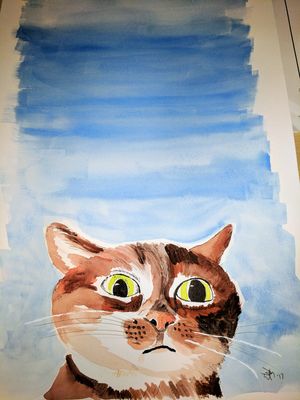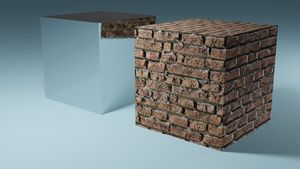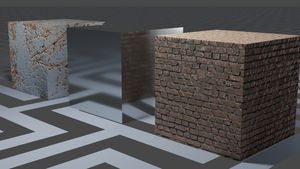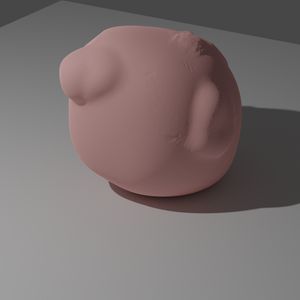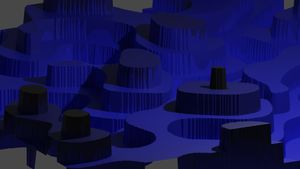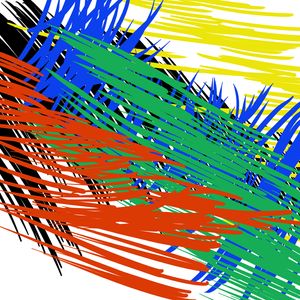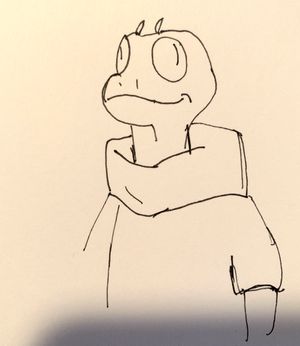
Scribblings
A place to put all my short, ephemeral thoughts and ideas.
Bag Of Words
Bag of words, have mercy on us, by Adam Mastroianni
Trying to understand LLMs by using the rules of human psychology is like trying to understand a game of Scrabble by using the rules of Pictionary. These things don’t act like people because they aren’t people. I don’t mean that in the deflationary way that the AI naysayers mean it. They think denying humanity to the machines is a well-deserved insult; I think it’s just an accurate description.3 As long we try to apply our person perception to artificial intelligence, we’ll keep being surprised and befuddled.
Old Hippie
Something I saw while waiting for git to compile in my terminal.
There’s a tradition you draw from, but the tradition evolves, it doesn’t mindlessly recreate. You don’t stay in the moment that you entered that tradition. My daughter says that Discord is IRC for young people, Slack is IRC for old people, and IRC is for people who can’t get out of their chair. I use Discord, and Slack, and barely remember to log into IRC (are there really 3,416 messages waiting for me in #neomutt?). I’m not trying to stay hip, chat, I’m just continuing to float downstream.
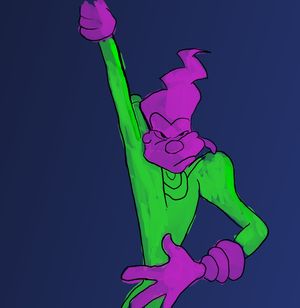
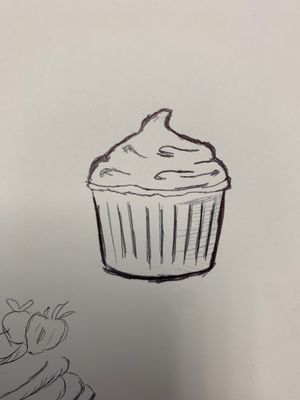
On Making Art
Steve and I seem to be in the same head space these days. I've subscribed to his vlog and newsletter "Woodworking for Mere Mortals" since the pandemic because I have aspirations to be a hobby woodworker, and lately he's been on a journey of thinking about "what does this all mean, really?"
We’ve built a culture that treats paid work as inherently more legitimate than unpaid passion. It’s strange how the things we often value most, like our art, our music, and the objects we craft with our hands, are the very things we feel we have to apologize for unless they turn a profit. We’ve been conditioned to believe that if something doesn’t earn income, it doesn’t “count.” Whenever I mention my writing or my art, I’m frequently asked if I make any money from them, or what my plans are to monetize them. As if the natural progression from passion is income. But maybe what counts most is what brings us alive.
Maybe our mid-life crises are lining up or something, but this feels very relevant. There are things in my life that I love and want to make more time for, and then there's the stuff that I do in order to support myself and my family. There's some overlap, but they're mostly two separate spaces.
A Society That Lost Focus
The root problem is that, for the first time in human history, our brain is the bottleneck. For all history, transmitting information was slow. Brains were fasts. After sending a letter, we had days or months to think before receiving an answer. Erasmus wrote his famous "Éloge de la folie" in several days while travelling in Europe. He would never have done it in a couple of hours in a plane while the small screen in the backseat would show him advertisements.
(link)
Interesting things this week, 3/17/25
- GIMP 3.0 is out in the wild (at least on Flatpak, there's no blog post for a release yet). The revamp has a lot of nice features in it, including non-destructive layer filters. I'm interested in playing around with the plugin system to see how extendable you can make filters.
- Our interfaces have lost their senses by Amelia Wattenberger is beautiful. This quote in it in particular hits home. "All day, we poke, swipe, and scroll through flat, silent screens. But we're more than just eyes and a pointer finger. We think with our hands, our ears, our bodies. The future of computing is being designed right now. Can we build something richer—something that moves with us, speaks our language, and molds to our bodies?"
- Still working my way through Humankind: A Hopeful History by Ruter Bregman. More on this later, but the vibe is right.
- I'm digesting this career advice article from Will Larson (h/t Brian Dailey on Nashdev). I'm not sure how I feel about all of the advice, but I definitely agree with point one, "Many people who first entered senior roles in 2010-2020 are finding current roles a lot less fun." There's plenty of good work to be done out there, but with less easy cashflow available and more and more oxygen being eaten up by LLM initiatives, strategies in software development that worked well 5 years ago don't work nearly as well today.
Reading Now
I'm currently reading two different books now, The Sun Also Rises by Ernest Hemingway, and Humankind: A Hopeful History by Rutger Bregman.
I don't always read two books at the same time because it's easy to get whiplash between different tones, but the library opened up a copy of Humankind while I was in the middle of The Sun Also Rises. The blend is interesting because the central thesis of Humankind, people are for the most part kind and altruistic despite what we see all around us, isn't the vibe of The Sun Also Rises at all. However, using that lens, you can kind of see how Jake and the other protagonists care for each other in their own broken ways.
Book: Phoenix Project
The Phoenix Project by Gene Kim, Kevin Behr, and George Spafford is a book about organizing software projects told in the format of a YA novel. The sequel The Unicorn Project is more dev focused, and both have good insights on the craft, and how to tie business value to engineering concerns.
The main lesson that sticks out to me about The Phoenix Project is the idea that there's four types of work: Business/New Features, Internal/Tech Driven, Operational Change (Deployments), and Unplanned Work.
